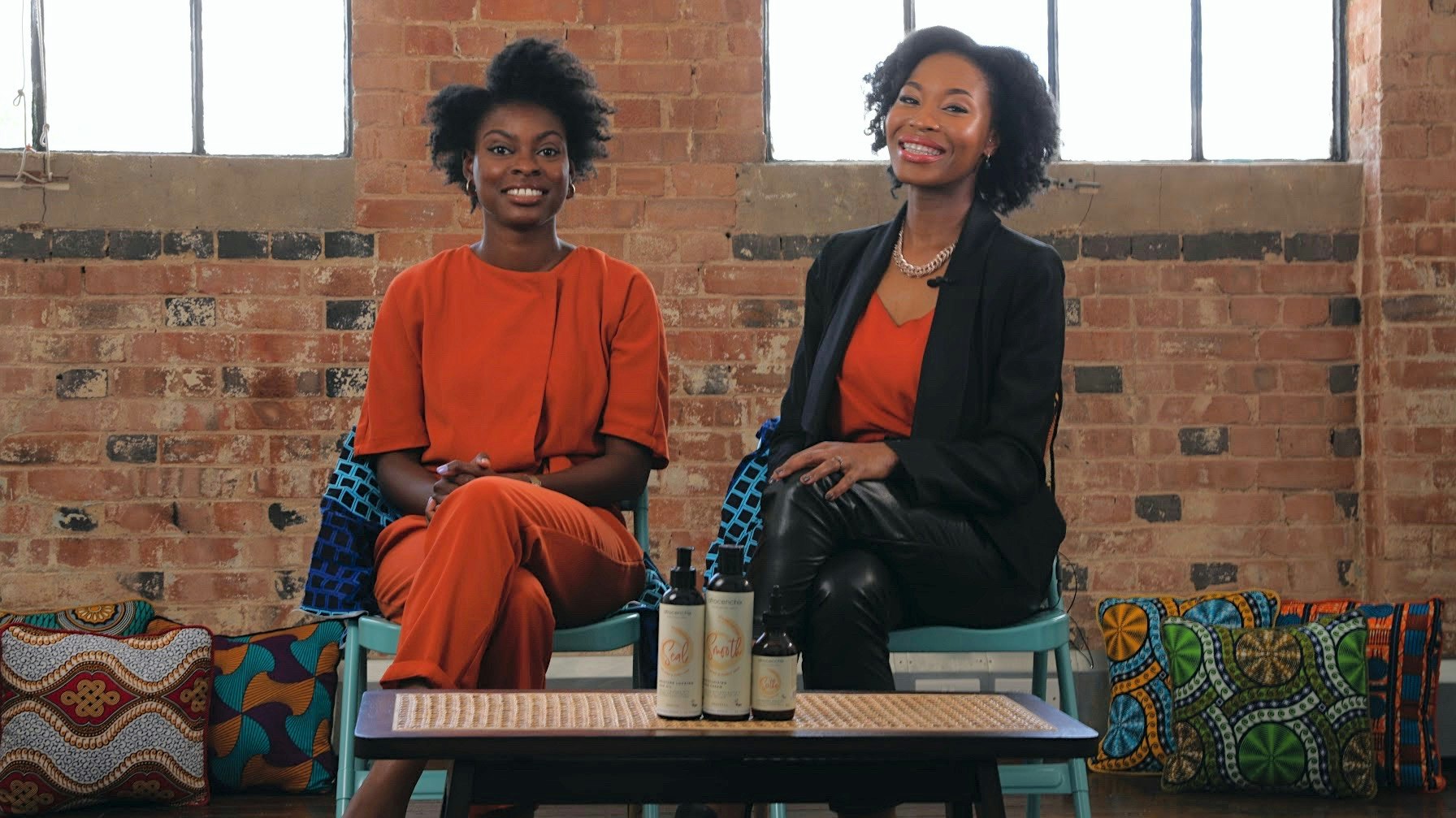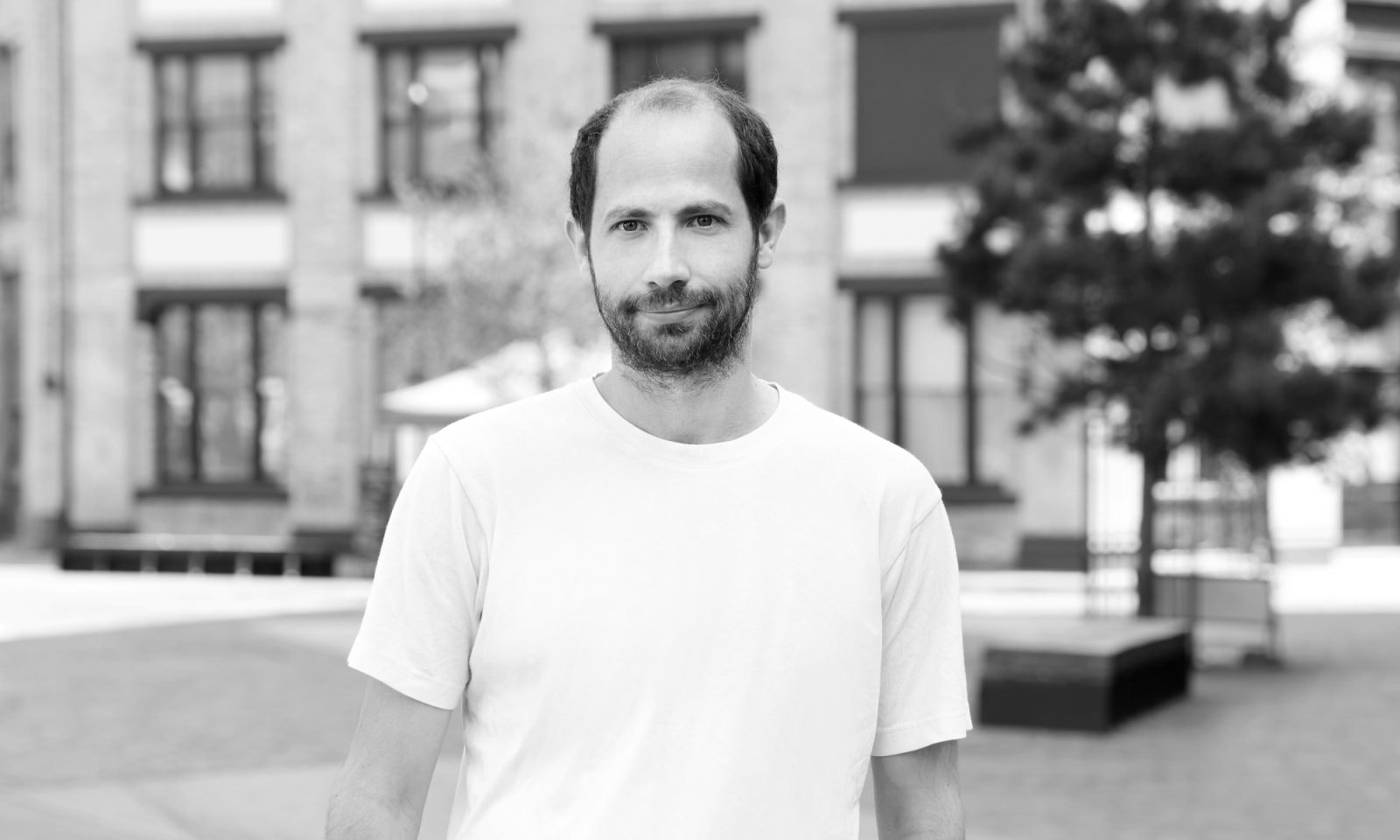Afrocenchix, which sells hair care products for afro and curly hair, has today announced it’s secured $1.2m in seed funding from Google.
In doing so, it’s become only the ninth UK business run by a Black woman in the last decade to secure VC funds.
Despite the company’s success, cofounder Rachael Twumasi-Corson describes fundraising as “horrible”. VCs often asked ignorant questions. One partner was asked to leave the room by his colleagues for racist comments made during a pitch.
“We had a VC meeting where someone said, if you’re doing so well, why has no one invested in you?” says Twumasi-Corson. “And I thought, well, could it be to do with the fact that less than 0.03% of VC money goes to Black women?”
Founding the company
Twumasi-Corson and her cofounder Joycelyn Mate met at university in 2009, where they both felt let down by the haircare options available to them.
“Jocelyn had some bald patches and was using oils to help. I had very bad eczema. Once, she was chemically straightening my hair and she just said ‘I’m not doing it, it's not healthy.’”
Twumasi-Corson’s mum started chemically straightening her hair when she was three, using products that are commonplace but contain ingredients that have been linked to fibroids, cancers, respiratory problems and adverse skin conditions.
The market had made her feel that her natural hair was somehow unmanageable, Twumasi-Corson says, and that she needed to revert to harsh chemicals to try and get it closer to straighter hair — which is still described as the ‘normal’ hair type on a lot of cosmetic packaging.
“It's not that afro hair is unmanageable. There's no hair type that is more or less difficult to manage. It's just the beauty industry focuses on straight European hair and ignores all other hair types, so you're going to think your hair is difficult to manage, right?”
Research suggests that seven in 10 Black women feel their needs aren’t met by the high street, though the same group also spends six times more on haircare and cosmetics than their white counterparts.
To find a solution, Twumasi-Corson and Mate hit their university library. After reading cosmetic science journals, they started to blend their own products.

Today, Afrocenchix offers a range of products using natural ingredients, including a sulphate-free shampoo, a silicone-free conditioner and a scalp oil. They target afro and curly hair with hydration and moisture — something it tends to need more of compared to straight hair.
The products are now sold in 27 countries and customer feedback is strong: 70% of their sales come from word-of-mouth recommendations.
They’ve also received letters from medics thanking them for offering alternatives to chemical straightening: a doctor in America wrote to the team to say she had watched an autopsy and seen scars on the woman’s brain and skull which were caused by straightening chemicals.
“Why are you going to Africa? Because aren’t they all poor there?”
Despite the success of the products, convincing the VC community has been a challenge.
“There was kind of an assumption that we must not be that intelligent,” she says. “The kind of questions we would be asked would be different than our white male friends were asked.”
For example, they were asked who did their strategy, as if it couldn’t possibly be Twumasi-Corson and Mate, while another VC suggested they needed to bring in some “adult supervision” (Twumasi-Corson and Mate are in their 30s.)
“People always look for the powerful, intelligent men behind the success of a woman,” she says. “When we’ve won awards, even on founder groups, people would start congratulating other men that they know we worked with at some point in the past, even if it was just for a month.”
At times, the pitch has been met with total ignorance. “We were asked directly, ‘Why are you going to Africa? Because aren’t they all poor there?” — despite the continent being the largest market for Afro hair products.
One white VC partner had clearly not read the pitch deck, Twumasi-Corson says, and asked the team if the product could help combat his receding hairline.
We’ve been told directly by a couple of VCs that we have the wrong background.
“We’ve been told directly by a couple of VCs that we have the wrong background,” she says. “And that it could be that someone who has the right connection, and the right level of confidence comes along and is able to do it bigger than us.”
“In a way, we actually appreciate the honesty on that one because you start to feel like you're crazy when people don't tell you what it is.”
At one pitching session, two VC partners asked the third to leave the room because of his racist comments. “The others were really outraged,” she says. “But the worst thing is, until they apologised to me, I just hadn't realised that he had said anything that bad because it wasn't the worst that we've had in pitches.”
Sometimes VCs have brought a Black person into the session especially for their pitch, which Twumasi-Corson says is “actually a good form of tokenism because you recognise that you don't get it so you find someone who does.” The problem, she says, is the VCs would normally pass and then the person would email them after saying they had tried to push for the investment and been turned down.
Tips for new founders
It’s important for female founders, and Black female founders in particular, to contextualise the reaction VCs have to them, she says, and have a “sober judgement” on the situation.
It’s important to look at the stats and recognise that less Black women receive funds than any other group, but it’s also important to recognise that there could still be things wrong with your pitch or product.
“Otherwise you take every setback as being about you, or you decide it's not about you and you decide everyone's racist, or maybe they're actually on your side, and maybe your idea needs some work, or maybe your pitch deck isn't good enough.”
In terms of practical advice, Twumasi-Corson also recommends founders get as many people to look over their pitch as possible to avoid taking a single opinion as the truth — and don’t be afraid to send early pitch decks to investors for feedback, which can act as early pitching practice.
She also recommends people organise investment paperwork really early on to get ahead, and says that if founders are working with sensitive information during the pitching process — like the formulas for Afrocenchix’s products — they should feel able to put data they want to behind NDAs during the pitching process.
We think that the best way to change both the industry and to get more equality for Black people is to just work our hardest to make sure that we are successful.
Afrocenchix’s focus is now on growing the team, releasing new products and marketing them.
“We think that the best way to change both the industry and to get more equality for Black people is to just work our hardest to make sure that we are successful,” says Twumasi-Corson. “And that changes people's perceptions, which isn't something that you can do overnight.”


